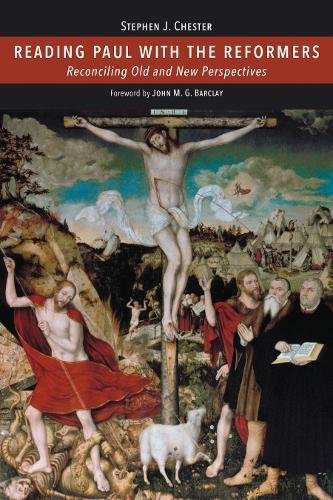Ben. Both Melanchthon and Calvin in their Romans commentaries rely on rhetorical analysis of the structure of the letter. How important do you think understanding their use of rhetoric is to understanding their theological observations on things like justification?
Stephen. There are some interesting differences between Melanchthon and Calvin in their rhetorical analysis, but there is no doubt that for each there is a relationship between it and their theological observations. Calvin’s analysis is simpler and has had the greater enduring influence. From 1:16 to the end of chapter 5 Paul is discussing justification, whereas chapters 6-8 discuss sanctification, before chapters 9-11 discuss Israel, election, and the covenant. With the exception that chapter 5 has often been regarded as a “bridge” passage between two major units, this rhetorical structure has been adopted by most historical-critical commentators on Romans. Where Calvin’s analysis has often been misunderstood by later scholarship is in the assumption that chapters 1-5 therefore represent a forensic track in Paul’s thought and chapters 6-8 a participatory track. Although Calvin does indeed teach that justification is forensic, he carefully positions justification so defined as one of the two principal dimensions, along with sanctification, of union with Christ, which he regards as Paul’s overarching soteriological theme. Calvin finds participatory themes not only in Paul’s discussion of sanctification but also in the apostle’s argument for forensic justification itself.
Melanchthon makes much direct use of ancient rhetorical categories of analysis. His enduring contributions lie in (i) shifting the previous perception that only the parts of Romans dealing with morals (chapters 12-14) had any ongoing significance for living the Christian life, and (ii) identifying 1:16-17 as the summary statement or proposition that sums up the main concern of Paul’s argument in the letter. Melanchthon, however, sees a major turning point not at 6:1 but a 5:12. From 1:16-5:11 Paul has developed his argument about justification by faith employing key terms such as “sin,” “law,” and “grace.” From 5:12-8:39 Paul does not further develop this argument but instead defines these key terms, with 8:12-39 functioning as a climactic discussion of new obedience in the Christian life and the love of God that comforts the believer. It is not difficult to see how this emphasis on the definition of key terms (which derived from Melanchthon’s re-reading of Aristotelian dialectics in primarily rhetorical categories) paved the way for later Protestant treatments of Romans in systematic doctrinal categories.













